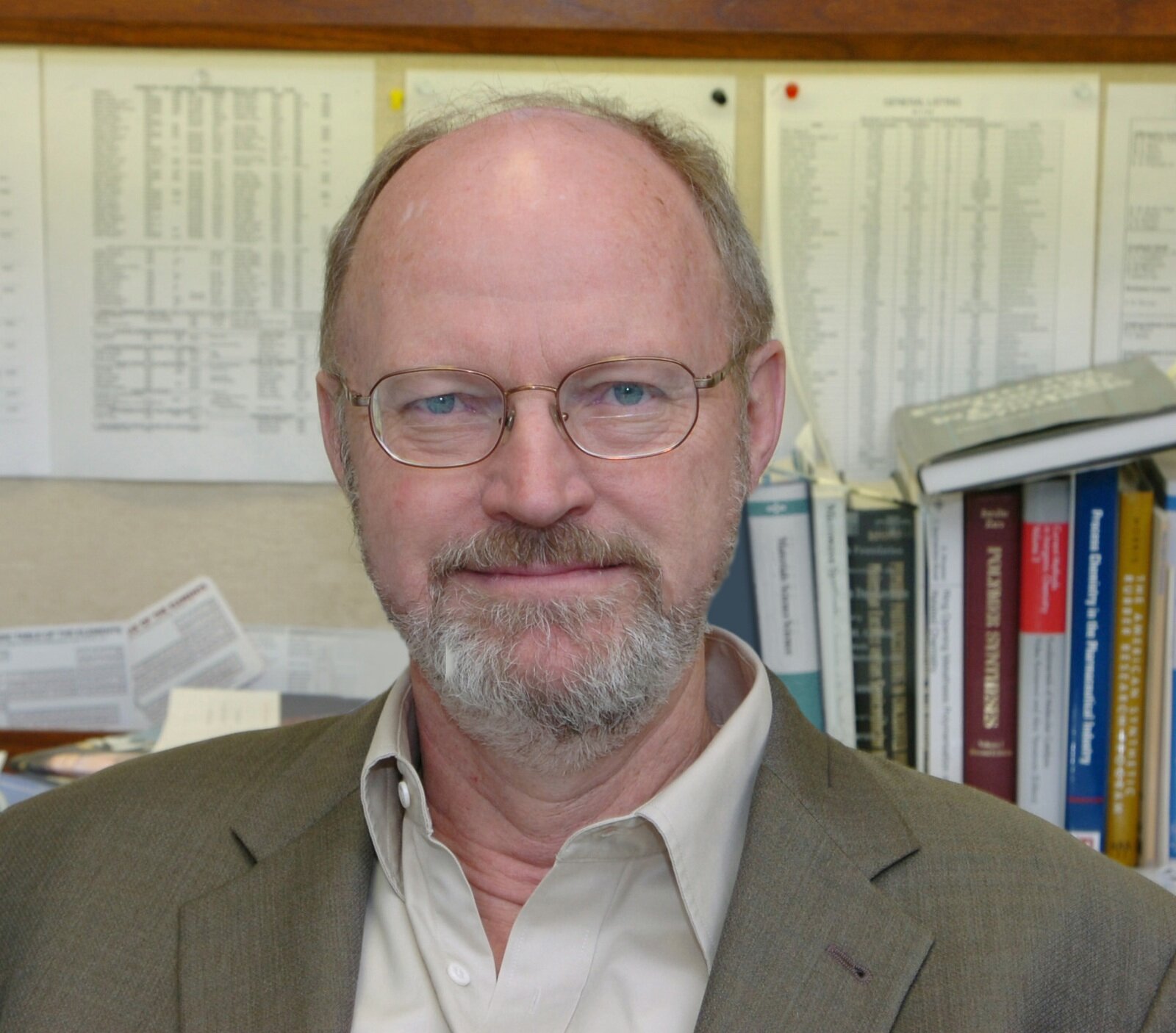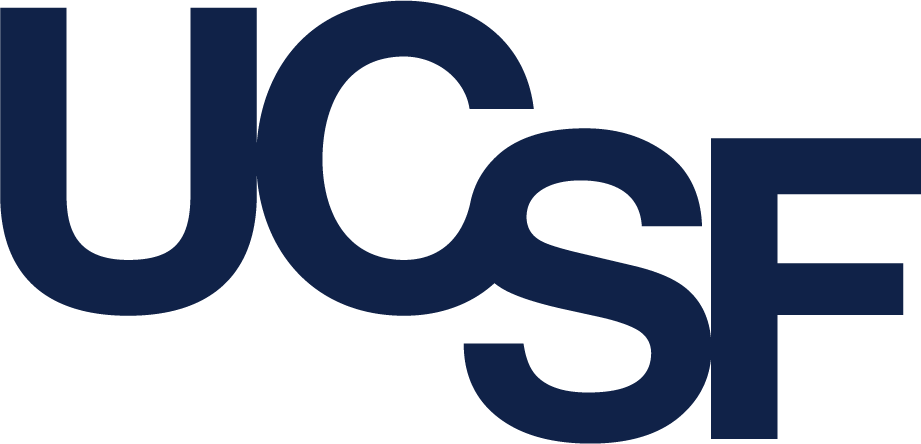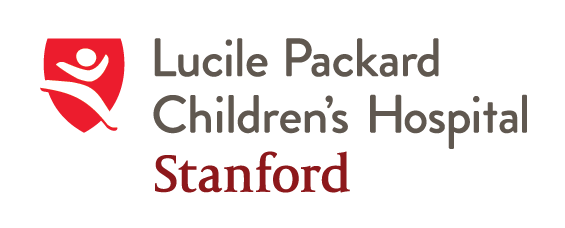2021 UCSF–Stanford PDC Accelerator Winners
On March 26, 2021, 11 finalists virtually pitched their pediatric device ideas to a panel of judges at the UCSF-Stanford Pediatric Device Accelerator Pitch Competition for a chance to win up to $100,000, prototyping support, and customized advising. Congratulations to the awardees, and special thanks to our judges!
Platinum Award- $100,000
Novonate
LifeBubble- Umbilical cord catheter protection and securement
Gold Award- $75,000
Rhaeos
FlowSense- Platform noninvasive wearable skin sensor
Silver Award - $50,000
Auctus Surgical Inc.
Auctus Dynamic Vertebral Body Tethering System- Dynamic, non-fusion system to treat scoliosis
UCSF-Benioff Children's Hospitals Award- $50,000
Myka Labs & UCSF Surgical Innovations
Connect-ES- Innovative device for esophageal endoluminal stricturoplasty
Silver Award - $50,000
Autus Valve Technologies Inc.
Autus Valve- Growth-accommodating synthetic heart valve
Bronze Awards - $25,000 each
BabySteps Orthopedics
BabySteps- Personalized, transformative, and accessible clubfoot treatment
Better Sleep Designs LLC
Cubby Beds- Smart beds for special needs
Starlight Cardiovascular
Project Lifeline- Ductus arteriosus stent for critical CHDs
PDC Mentorship Awards
Ostiio LLC
Ostiio Craniomaxillofacial Distraction System- Subcutaneous, remote-controlled, contactless craniomaxillofacial distraction system
Limbix Health
Limbix Spark- CBT-based digital therapeutic for adolescent depression
Stanford University
CatWatch- Neonatal umbilical catheter monitoring
2021 PDC Accelerator Pitch Competition Finalists
Auctus Surgical Inc: Auctus Dynamic Vertebral Body Tethering System- Dynamic, non-fusion system to treat scoliosis
Auctus is developing a system to treat pediatric scoliosis with non-fusion surgical system called a vertebral body tethering system. Our growth modulation system includes a flexible tether affixed to the anterior/lateral portion of the vertebral bodies. As achild grows the spine straightens over time. Our dynamic system includes a non-surgical adjustable component that allows for an increaseor reduction in tether tension over time. Vertebral body tethering systems offer a clear clinical advantage over the current standards of care, which include long term bracing therapy and ultimately highly traumatic fusion surgery.
Autus Valve Technologies Inc: Autus Valve- Growth-accommodating synthetic heart valve
Autus Valve Technologies, Inc. (Boston, MA) is a medical device company developing a novel expandable pulmonary valve replacement. The innovative biomimetic design of the Autus Valve provides the capability for diameter expansion pre-and post-implantation, via minimally invasive transcatheter balloon dilation. This design-based solution is able to accommodate changes in blood flow due to patient growth or heart remodeling, to prevent the complications of valve prosthesis-patient mismatch. For children, this technology will avoid repeated invasive open-heart operations throughout their lifetime, improve their overall quality of life and long-term survival, and dramatically reduce health care costs.
BabySteps Orthopedics: BabySteps- Personalized, transformative, and accessible clubfoot treatment
BabySteps Orthopedics is developing a personalized, accessible and transformative serial casting platform to treat pediatric musculoskeletal and neuromuscular impairments. Leveraging 3D imaging, computer modeling and 3D printing we have developed an easily deployable serial casting treatment method to prevent lifelong disability. With an initial focus on clubfoot, our technology will democratize access to treatment throughout medical deserts in the US and around the globe.
Better Sleep Designs LLC: Cubby Beds- Smart beds for special needs
Cubbys are smart beds designed to improve safety, sleep, and anxiety for people with Autism, Dementia, Traumatic Brain Injuries, and other conditions. To help with safety issues such as seizures, self injury, or elopement, the beds provide heavy padding and sensors connected to cameras that enable remote monitoring. To improve sleep and anxiety, the beds have a sensory canopy to better control the environment and utilize sensory inputs such as light, sound, and vibration to help calm the user. The beds are a FDA registered medical device and can be covered by insurance.
Company website -CubbyBeds.com
Limbix Health: Limbix Spark- CBT-based digital therapeutic for adolescent depression
Depression impacts over 3.2 million adolescents with far-reaching consequences, including impairments in academic and work performance, friction in social and family relationships, substance abuse, and exacerbation of other health conditions, with a significant economic burden on the US healthcare system. The majority of adolescents with depression have significant unmet clinical needs, underscoring a need to develop scalable solutions. Limbix Spark is a self-guided, cognitive behavioral therapy (CBT) digital program designed to treat adolescent depression and is currently being evaluated as a therapeutic intervention in clinical trials. Spark was developed in consultation with expert clinicians and researchers in adolescent mental health and the integration of digital therapies into behavioral healthcare. Adolescents from a variety of geographic and socioeconomic backgrounds have participated inco-design activities and user testing to ensure that content is engaging and age appropriate. Once FDA-cleared, Spark will be prescribed as firstline treatment for adolescent depression within primary care.
Myka Labs, UCSF Surgical Innovations: Connect-ES- Innovative device for esophageal endoluminal stricturoplasty
Pediatric esophageal strictures are notoriously difficult to treat and often require numerous interventions, which negatively impact the quality of life of not only affected patients but also their families. Currently available first-and second-line interventions are often ineffective and frequently associated with further complications. Surgical intervention is avoided whenever possible due to limited efficacy and significant morbidity. Connect-ES is a novel intervention for short-segment pediatric esophageal stricture. Our innovative device employs patented magnetic technology to create a physiological equivalent to a surgical stricturoplasty but through an incisionless, endoluminal approach. The Connect-ES will transform both the clinical approach to esophageal stricture and the quality of life of pediatric patients as well as their families.
Novonate: LifeBubble- Umbilical cord catheter protection and securement
Umbilical cord catheters are lifelines that deliver medication and nutrition to critically-ill newborns in the neonatal intensive care unit (NICU). The reliability and safety of these catheters are vital, yet the standard of care to secure them is a suture and adhesive, which do not protect the catheter insertion site and offer variable levels of securement. This leads to an umbilical venous catheter migration rate of up to 63% and a bloodstream infection rate that is at least five times that of central lines in adults. Novonate designed and developed LifeBubble, the only device that physically protects the catheter insertion site and mechanically secures the umbilical catheters to lower the risk of malposition. LifeBubble is easy to use, retains the current NICU workflow for umbilical catheter securement, and allows for the independent securement of two umbilical catheters. Since launching LifeBubble in 2019, Novonate developed and launched two accessory products in direct response to customer feedback. LifeBubble has now been used on over 500 patients in four different states!
Company website- www.novonate.com.
Ostiio LLC: Ostiio Craniomaxillofacial Distraction System- Subcutaneous, remote-controlled, contactless craniomaxillofacial distraction system
Ostiio is committed to improving the lives of children with craniofacial differences.The treatment experience for these children and their families is often complex and traumatic –but we believe it doesn’t have to be.The Ostiio distraction system squarely addresses the chief limitations of existing technology in order to improve patient outcomes and experience: 1) Our fully implantable distractor reduces risk for device-associated complications; 2) Our automated system simplifies treatment for parents and caregivers; 3) Our remote-monitoring platform places the surgeon firmly back in control.
Company website- www.ostiio.com
Rhaeos Inc: FlowSense- Platform noninvasive wearable skin sensor
Rhaeos, Inc. aims to improve the care of 1M Americans today living with hydrocephalus, a neurosurgical condition caused by the accumulation of cerebrospinal fluid (CSF) in the brain. Implantable shunts, the gold standard treatment in a $2B market, often fail and lead to multiple trips to the emergency room. Patients with failed shunts show nonspecific symptoms, including headaches, nausea, and dizziness. CT scans are used for diagnosis, but are inconclusive, expensive, and expose patients to harmful radiation. To address this problem, Rhaeos is developing FlowSense, a wireless, noninvasive sensor that can be mounted on a patient’s skin overlying the shunt to detect the presence and magnitude of CSF in a matter of minutes as opposed to waiting for x-ray or CT imaging that can take an hour or more. With FlowSense, the monitoring of shunt function can occur in clinics, in-patient settings, emergency departments, and homes, obviating the need for unnecessary imaging, hospital visits, and admissions leading to significant cost savings. Led by a team of seasoned medical device experts, FlowSense follows a FDA De Novo 510(K) path and is on track for a regulatory submission in 2021.
Company website- www.rhaeos.com
Stanford University: CatWatch- Neonatal umbilical catheter monitoring
Umbilical vessel catheterization (UVC) is a life-saving procedure for many premature and/or sick infants. However, UVCs are often misplaced or migrate with an incidence ranging from 20% to 60%, which can lead to serious complications or death. CatWatch is the proposed solution that harnesses cardiac electrophysiology including the catheter as an electrode to allow real-time monitoring for catheter migration. The noninvasive signal processing of the patient’s own electrocardiogram has been proven an accurate means of central line positioning in adults. Catwatch has proven, through grant funded research at Stanford, that electrocardiogram signals processed specifically for neonates can be used at a level of precision necessary to identify UVC migration. The device is relevant to 200,000 newborn babies per year in the United States and represents a $40M market opportunity. The team has a capital efficient plan for device development and focused implementation in major Children’s Hospitals.
Starlight Cardiovascular: Project Lifeline- Ductus arteriosus stent for critical CHDs
Starlight Cardiovascular is solving critical, unmet needs in Pediatric Cardiology with a focus on business model innovation. Congenital heart defects occur in 1% of live births and account for at least $5.6B in hospital costs each year in the U.S. alone. Almost all of the tools being used to treat congenital heart disease today are devices that are designed for adults, forcing physicians to “make do” and leading to increased morbidity and re-intervention. Project Lifeline will be the first FDA-approved device designed specifically for stenting the ductus arteriosus in newborns, a life-saving procedure with the potential to obviate an open-heart, on-pump surgery. The stent can be delivered through a much smaller, more navigable catheter than stents that are currently used off-label for this purpose, and the device design allows for complete, conformable end-to-end coverage of the ductus even when the length cannot be precisely measured. The company is founded by a veteran team of cardiovascular medical device and pediatric clinical experts that are uniquely positioned to develop and commercialize devices to solve unmet needs in pediatric congenital heart disease, including a world-renowned Nitinol expert that has built two successful medical device manufacturing businesses and Dr. Pedro del Nido, the chief of pediatric cardiovascular surgery at Boston Children's Hospital. The operating team has deep experience in Biodesign methodology and has brought numerous products to market at both start-up and Fortune 500 companies.
Company website- starlightcardio.com
2021 PDC Accelerator Pitch Competition Judges
Avi Roop, MBA
Avi Roop conducts the technical and business analysis of medical device investment opportunities for RCT. He has more than twenty years experience in surgical and interventional device markets and possesses extensive experience in early-stage development from unmet need identification to early commercialization. During his career, he has been named on twenty-nine issued patent families and completed three company exits.
Bronwyn Harris, MD, MS
Bronwyn Harris is an innovator in the digital health space. She has a background in bio-medical engineering and is a pediatric cardiologist. She completed the Stanford Biodesign fellowship, where she was able to combine her biomedical background and clinical expertise. The Biodesign fellowship ultimately led to her co-founding Tueo Health, a device-enabled digital health solution, that was initially focused on pediatric asthma. While Bronwyn's primary focus is in the digital health space, she still practices part-time as pediatric cardiologist at Stanford.
Diana Farmer, MD
Dr. Diana L. Farmer, one of the first female fetal surgeons, is the Distinguished Professor, Pearl Stamps Stewart Chair of the Department of Surgery, and Surgeon-in-Chief of the UC Davis Children’s Hospital. Her lab made the seminal discovery that hindbrain herniation could be ameliorated by prenatal repair in fetal sheep. She is widely known for her role as a Principal Investigator on the $22 million NIH-funded Management of Myelomeningocele Study (MOMS Trial), the results of which were published in the New England Journal of Medicine. In 2020, Dr. Farmer received FDA approval for the first-in-human clinical trial of stem cells in fetal surgery for Myelomeningocele, the most severe form of spina bifida.
George Tidmarsh, MD, PhD
George Tidmarsh received his M.D. and Ph.D. from Stanford University, where he also completed his fellowship training in Pediatric Oncology and Neonatology and is currently Adjunct Faculty of Pediatrics and Neonatology since 2018. He served as clinical faculty at Stanford for a number of years after his fellowship prior to devoting his full time to clinical research and development in order to bring new treatments through the FDA approval process. Since 2018 Dr. Tidmarsh has served as a director and chairman of audit committee of Lucile Packard Foundation for Children's Health. Since the company’s inception in 2020 he has also served as chairman at Revelation Biosciences Inc. Prior to joining Revelation. Dr. Tidmarsh was President, Chief Executive Officer, Secretary and a Director of La Jolla Pharmaceutical Company (La Jolla) from January 2012 until November 2019. While at La Jolla, Dr. Tidmarsh helped discover the use of angiotensin II for the treatment of shock and led all aspects of development including approval by the U.S. Food and Drug Administration (FDA) and the European Medicines Agency (EMA) for the treatment of patients suffering from distributive shock. He also led the development of artesunate for the treatment of severe malaria, which was approved by the FDA. Dr. Tidmarsh has over 30 years of experience in biotechnology, including the successful clinical development of 7 FDA-approved drugs. He previously served as the Chief Executive Officer of Horizon Pharma, Inc., a company he founded in 2005, where he continued as CEO until 2008 and Director until 2010. While at Horizon, he invented and led all aspects of development of Duexis, which was approved by the FDA for the treatment of rheumatoid arthritis. He also founded Threshold Pharmaceuticals, Inc. and held senior positions at Coulter Pharmaceutical, Inc. (acquired by GlaxoSmithKline) and SEQUUS Pharmaceuticals, Inc. (acquired by Johnson & Johnson). While at Coulter and SEQUUS, Dr. Tidmarsh led the clinical development of BEXXAR and Doxil, respectively, two FDA-approved anti-cancer agents.
Michael Billig
Michael J. Billig is CEO of Experien Group, a regulatory, quality and clinical consulting firm, which he co-founded with his wife, Darlene Crockett-Billig, in 2003. His entire 45+ year professional career has been involved with regulatory affairs, quality systems, clinical research, and general management for medical device companies. Mike has secured regulatory approval for hundreds of medical device products across the U.S., Europe, Canada, Central and South America, and Asia. He has been involved with a variety of product areas, including sterile disposable products, electronic instruments, robotics, combination products, mobile health, and devices for regenerative medicine. He has particular expertise in the interventional cardiology and cardiac surgery areas. Mike earned his BS degree in Microbiology from the University of Minnesota.
Pierre Theodore, MD
VP, Scientific Innovation, Johnson & Johnson Innovation
Pierre R. Theodore is Vice President, Therapeutic Area Expert, Thoracic Surgical Oncology for Johnson & Johnson Medical Devices Companies. In this role, he is responsible to help accelerate innovation, advance the standard of care within early stage science and to elevate existing and adjacent technologies.
Rick Idemoto, MBA
Rick Idemoto is Stanford Children’s Health’s Executive Vice President, Chief Strategy Officer and joined the team in December 2019.Rick brings nearly 20 years of healthcare experience in strategy, network development, operations, partnerships and acquisitions for both academic and community providers.Prior to Stanford Children’s Health, Rick was the Vice President of Business Development and Chief Operating Officer of the Clinically Integrated Network and Medical Group at the University of Chicago Medicine.He also held multiple Vice President and leadership roles at Advocate Health Care (Chicago, IL) for its hospitals and medical group where he led its strategy, growth and business development functions.Rick earned master’s degrees in business administration and health policy and administration from Pennsylvania State University.
Robert Grubbs, PhD
B.S.; M.S.Chemistry, University of Florida, Gainesville,Florida, 1963; 1965. Ph.D., Chemistry,Columbia University, New York,1968. NIH Postdoctoral Fellow, Chemistry, Stanford University, 1968-69. Faculty member at Michigan State University from 1969 to 1978.He is the Victor and Elizabeth Atkins Professor of Chemistry at the California Institute of Technology, Pasadena, California, USA, and faculty member since 1978. The Grubbs group discovers new catalysts and studies their fundamental chemistry and applications. For example, a family of catalysts for the interconversion of olefins, the olefin metathesis reaction has been discovered in the Grubbs laboratory. In addition to their broad usage in academic research, these catalysts are now used commercially. He has also been involved in the translation of technology through the founding of five companies. Awards have included the Nobel Prize in Chemistry (2005),tenACS National Awards. Elected to the National Academy of Sciences (1989), Fellow of the American Academy of Arts and Sciences (1994), the Honorary Fellowship of the Royal Society of Chemistry (2006), Fellow of National Academy of Inventors(2014), National Academy of Engineering (2015), Foreign Member of the Chinese Academy of Sciences (2014),and of Great Britain’s Royal Society (2017).
Stephanie Marrus, MBA
Stephanie Marrus is Managing Director, Entrepreneurship. In this role, she has facilitated the start of numerous companies based on UCSF science and medicine. She is a key node in the Silicon Valley entrepreneurship ecosystem and has built relationships with investors, serial entrepreneurs, accelerators, founders, attorneys, consultants, UC Berkeley and Stanford that benefit UCSF startups.
























